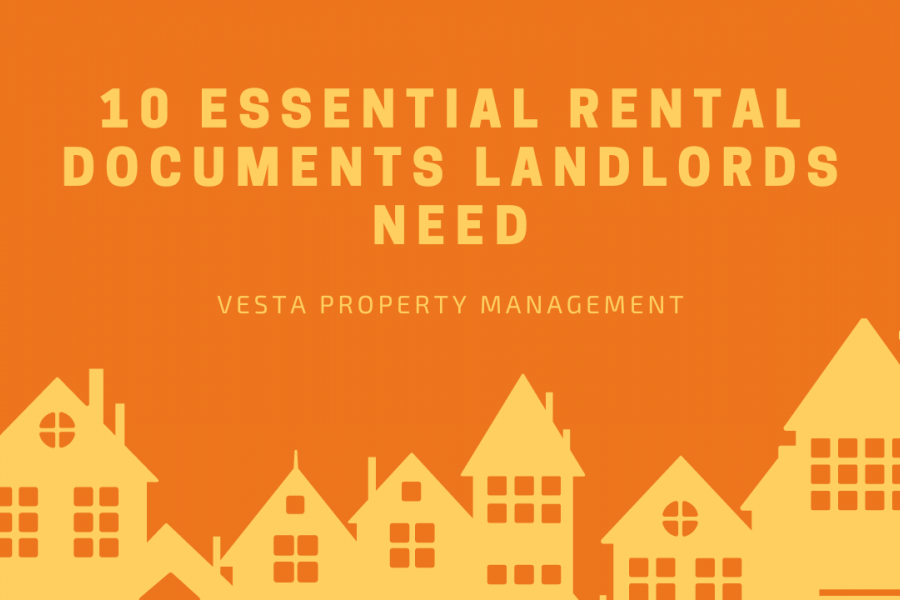
In the world of property management, landlords face a multitude of tasks. From securing trustworthy tenants to handling various maintenance duties.
Keeping well-organized and up-to-date rental paperwork is a crucial aspect of running a successful rental property. These documents ensure that both the landlord's and the tenant's rights and responsibilities are protected.
In this article, we will explore the key rental documents landlords commonly require, providing an overview of their purpose and importance in the rental process.
Benefits and Importance for Managing Rental Property
Establishing Accountability
Landlord documents, particularly lease agreements, help to hold tenants accountable. These agreements outline the rules and expectations for both parties, making it simpler to handle situations like late rent payments or property damage.
A well-crafted lease agreement establishes a solid foundation for ensuring that everyone fulfills their responsibilities.
Preparing for Potential Legal Matters
In the rental property world, disputes can sometimes lead to legal proceedings, which is why keeping detailed records is crucial. It helps gather evidence and prepares you for court hearings. Well-documented agreements can also resolve disputes amicably, saving you from costly legal expenses.
Accurate Financial Management
Maintaining accurate accounting records is not just good practice; it's essential for the long-term success of your rental business.

By documenting rental income and expenses, you gain a clear understanding of your financial position. This allows you to make informed decisions about your property, plan for future investments, and meet your financial obligations.
Consistency and Reputation
Consistency is key in the rental industry. A well-documented set of procedures ensures fair treatment for tenants.
This fosters a sense of trust and satisfaction among your current tenants and upholds your reputation as a reliable and professional landlord. A positive reputation attracts quality tenants and facilitates future leasing opportunities.
Must Have Rental Documents for Landlords
Now that we understand the importance of landlord documents let's dive into the essential ones you should keep on file to ensure a well-documented rental process.
Lease Agreements
A lease agreement is the cornerstone of a landlord-tenant relationship. This comprehensive document outlines the terms, conditions, and obligations for both parties. Be sure to keep both physical and digital copies for easy reference and backup, ensuring a hassle-free rental process.
Amendments to the Lease
During the tenancy, you may need to change the original lease agreement. It's important to document any amendments in writing and keep copies on file. This ensures that both parties are aware of the modifications, protecting everyone's rights and maintaining a transparent rental process.

Records of Rental Inspections
Documenting rental unit inspections is crucial for property maintenance and resolving disputes.
Keep records of move-in, move-out and general inspections conducted during the tenancy. These records help track the property's condition over time and provide evidence for security deposit claims or necessary repairs.
Notices to Tenants
Maintaining copies of all notices sent to tenants is crucial for legal protection. Whether it's a late rent notice or a notice of non-compliance, these documents indicate that tenants were informed about their responsibilities and if they had any violations of their lease agreement.
Having these notices on file safeguards your rights as a landlord and provides evidence if legal disputes arise.
By keeping these essential rental documents on record, you establish a strong foundation for a well-organized rental property. These records protect your interests and contribute to accountability, smoother communication, and the overall success of your rental property.
What Documents Should Landlords Provide to Tenants?
While the specific requirements may vary depending on state laws, here are some standard documents that landlords should give to their tenants:

Lead-Based Paint Disclosure
In Florida, if your rental property was built before 1978, you are legally required to provide a lead-based paint disclosure. This document informs tenants about the potential hazards of lead-based paint, commonly used in older properties. Make sure to provide this disclosure form to tenants as required by law.
Security Deposit Receipt
In Florida, landlords are required to provide tenants with a receipt for the security deposit. This receipt should include details about where and how the deposit is being held and the amount. Familiarize yourself with the specific requirements in your area to ensure compliance.
What Documents Should Landlords Collect from Tenants?
When it comes to collecting documents from tenants during the rental application process, landlords typically need the following:
Rental Application
A rental application is a comprehensive form that gathers essential information about your tenant. It includes personal details, employment history, and references. This information helps landlords screen applicants and assess their suitability for the property.
While it is an essential tool for making informed tenant selection decisions, it is also wise for landlords to keep this information on hand throughout a tenancy.
Background Check Authorization
It is wise to request a signed background check authorization form from prospective tenants. This authorization allows landlords to verify the applicant's identity, check their criminal history, and obtain insights into their previous rental experiences.
Proof of Income
To evaluate the tenant's financial capability, landlords may ask for proof of income. This can include pay stubs, bank statements, or tax returns, providing evidence of the tenant's ability to meet their financial obligations.
Reference Letters
During the tenant screening process, it is wise to ask tenant's to provide reference letters from previous landlords or employers. We recommend that you keep these references on hand throughout a tenancy in the case that you need them again.
Remember to familiarize yourself with local laws and regulations regarding tenant screening and document collection to ensure compliance and protect your rights as a landlord.
Final Words
In a nutshell, having these essential documents on hand is crucial for landlords to maintain a successful rental property. They offer legal protection, prevent issues with tenants, and help to ensure a positive landlord-tenant relationship.
Streamline the management of your rental property by partnering with Vesta Property Management. We offer comprehensive property management services, including record keeping, tenant screening, and maintenance coordination.
Contact us today to simplify your rental property operations and learn more. Let us take care of the details so you can focus on maximizing your success.